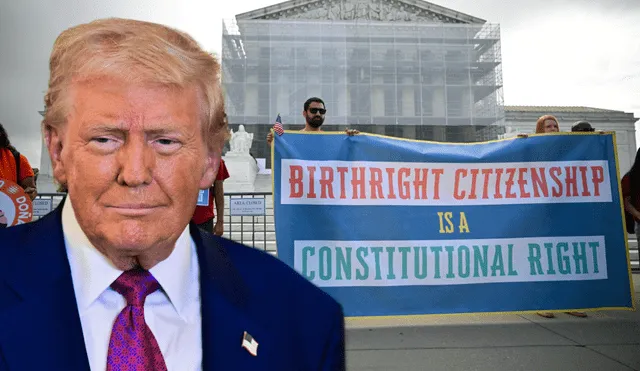Birthright citizenship: Supreme Court evaluates Donald Trump’s request to restrict the 14th Amendment
The Supreme Court is reviewing Trump's plan to limit birthright citizenship under the 14th Amendment, while lower court rulings remain in place.

The U.S. Supreme Court is reviewing emergency requests from the Trump administration seeking to limit the reach of court orders that blocked a proposal to restrict birthright citizenship.
If granted, the proposal could take effect in parts of the country while litigation continues in lower courts. This would open the door for further policies to be implemented via executive actions.
What is the14th Amendment?
The 14th Amendment is what grants U.S. citizenship to all persons born on American soil under the principle "jus soli". However, there are some exceptions to this rule:
- Children of foreign diplomats: They are typically not under U.S. jurisdiction; therefore not considered U.S. citizens.
- Children of enemy occupiers: In a hypothetical scenario, children born to members of a foreign army occupying U.S. territory, are not considered citizens.
- Children born in U.S. territories: Some territories of the U.S. are exempted from the birthright citizenship, like American Samoa.
Trump seeks to redefine14th Amendment’s citizenship clause
Donald Trump has an ideal about what the 14th Amendment should be like. According to him, the best would be for the clause to grant citizenship to those born to at least one parent who is a U.S. citizen or is a permanent U.S. resident.
Nonetheless, every court so far has denied the request and Trump has filed 3 separate applications to the Supreme Court in an attempt to narrow the injunctions issued by judges in Maryland, Massachusetts and Washington.
While the Trump administration has complained about judges who have blocked various policies, the president has heavily relied on executive orders in order to enforce his agenda, rather than seeking approval or legislation from Congress or federal agencies.













